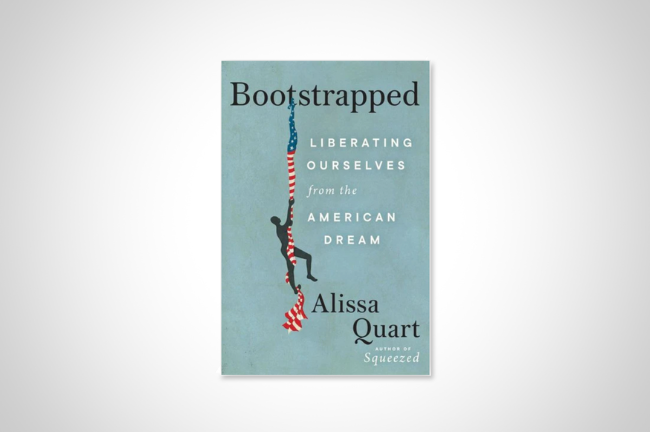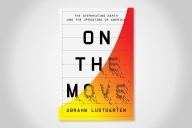You have /5 articles left.
Sign up for a free account or log in.

Ecco/HarperCollins
Bootstrapped: Liberating Ourselves from the American Dream by Alissa Quart
Published in March 2023
Because I am a higher ed person, almost nothing related to my job is done alone. Every project, initiative and service that I work on, I do so with colleagues.
The online programs I work on can’t exist without professors, instructional designers, media educators, librarians and student assistants. The team that puts together and runs an online program can’t do its job without the work of the countless people who provide and manage the institutional infrastructure (data, technology, billing, registrar, etc.) on which every university depends.
This dependence on one another to get anything done in higher education was on my mind as I read Alissa Quart’s new book, Bootstrapped. How can it be that the ethos of individual performance is so strong when judging the reasons behind an individual’s career success and failures, where success in academia is entirely dependent on how well groups work together?
The central argument of Bootstrapped is that we overestimate the importance of self-reliance. In the book, Quart tried to find the origins of our obsession with self-made individuals and the belief that asking for help is a sign of weakness. She traces this tendency to reject collaborative values to thinkers as diverse as Thoreau and Rand and to cultural touchstones ranging from Horatio Alger novels to Little House on the Prairie. (The fact Alger was likely a pedophile was news to me.)
In education, our tendency to emphasize individual character and choices over structural elements shows up in our embrace of ideas around grit. While individual success results from the interplay between one’s choices and behavior (agency) and the constraints and systems one must navigate (structure), Quart thinks we emphasize the former too much.
From a policy perspective, an ethos of self-reliance has caused an unnecessary administrative burden for individuals needing to access benefits such as Medicaid and food-assistance programs such as SNAP. For individuals, the culture of self-reliance can lead to depression and anxiety. We tend to view career setbacks purely through the lens of individual failure rather than as the result of broader economic or organizational forces beyond our control.
Navigating a career in higher education requires internalizing the impossibility of pulling ourselves up by our bootstraps. As Quart observes in the book, it is, in reality, a physical impossibility to lift yourself by pulling on your boots. In fact, the original meaning of the idiom pulling yourself up by your bootstraps meant doing something absurd and only later evolved into a statement about succeeding without outside help.
Unfortunately, too many structures within academia serve to perpetuate the myth of individual action. Staff receive annual performance evaluations for their individual contributions, ignoring the reality that all academic work takes place in a broader institutional context. Tenure-track faculty must prioritize scholarly productivity ahead of everything else. Dissertations are solo acts.
Reading Bootstrapped is a good reminder of how much we depend on one another. Applying the ideas of this book to an academic context might help us understand the structures that stand in the way of success for everyone within our university communities.
What are you reading?








